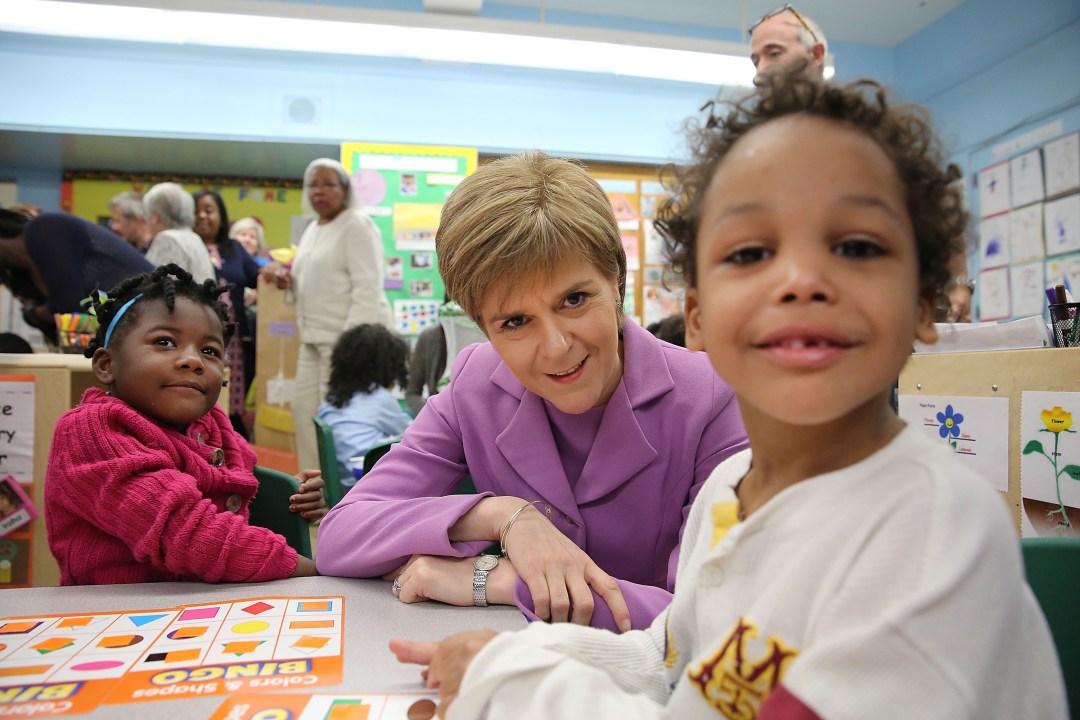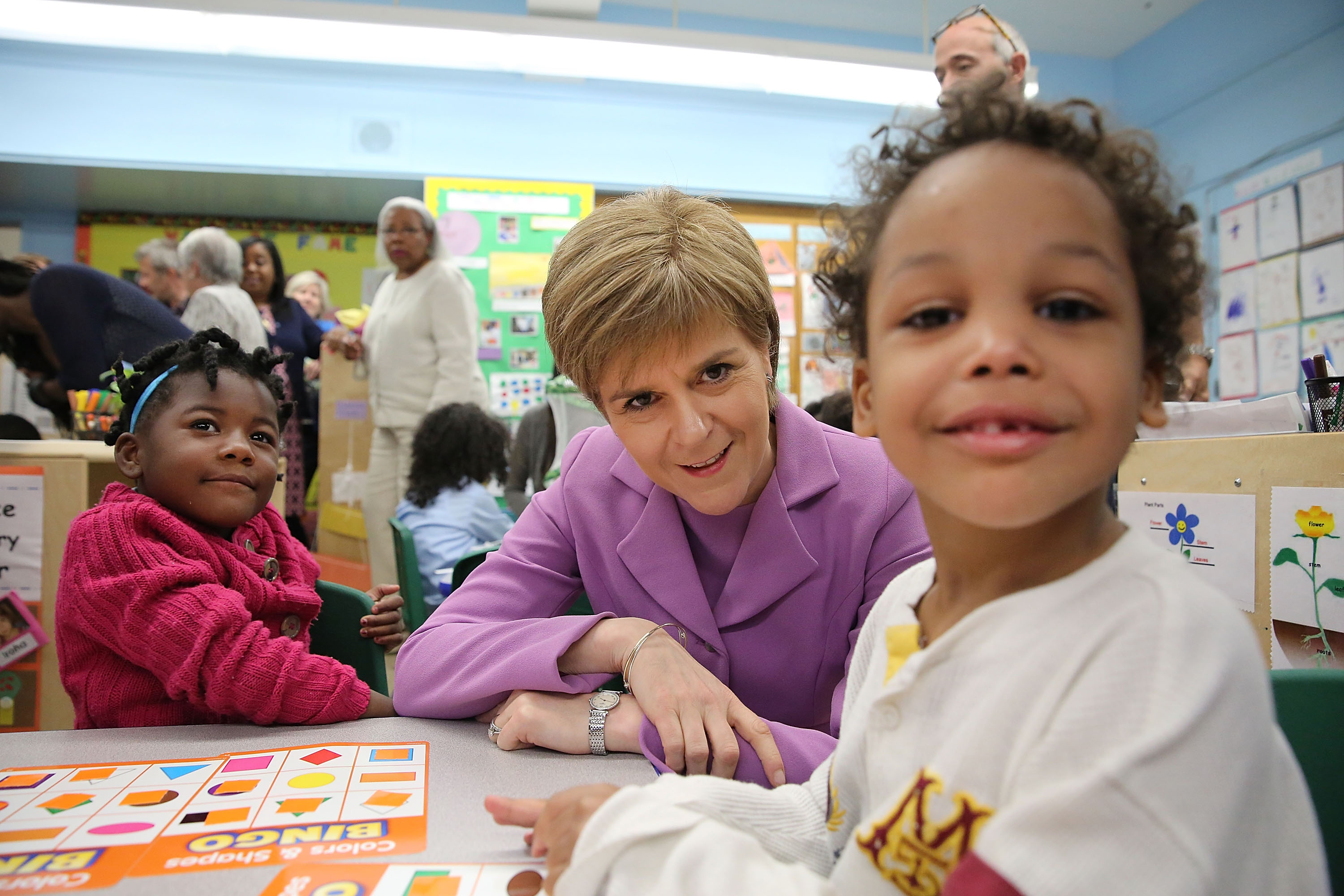This, everyone agrees, is no time for politics as normal. We are – all of us – engaged in a great national struggle. Partisanship is for yesterday and tomorrow; these are different times and the ordinary rules of politics have been suspended.
Even so, the occasional green shoot of normality can still be seen and for some of us this is a joyous thing indeed. So yesterday I was delighted to see the Scottish government announce that an inconvenient and controversial review of Scottish education, due to be led by officials from the OECD, will not report its findings until June 2021 at the earliest.
Elections to the Scottish parliament are due to be held in May 2021 and clearly there is no connection between these two events, just as there is no connection between the election date and the fact that the Scottish government’s proposed reforms to gender recognition laws have also been delayed until some, as yet unspecified, time after the election.
This is a good time to be burying controversy and, from the SNP’s perspective, this is eminently sensible. Why take the risk of allowing bad news to derail the party’s campaign for a fourth term in office?
Never waste a crisis, as all the smart types are fond of saying these days
Still, the shamelessness of it all is in one sense immensely entertaining; a reminder that despite everything else there is still room for politics. Never waste a crisis, as all the smart types are fond of saying these days.
The education review was forced upon the Scottish government in a rare instance of the opposition parties at Holyrood working together to inconvenience the minority SNP administration. As such it was most unwelcome.
Worse still, the review into Scottish education – and specifically the question of whether the country’s Curriculum for Excellence is working – could not possibly end well for the nationalists. If, as must be conceded is possible, it declared the system is working well it would be dismissed as a whitewash; if, as must be reckoned more probable, it confirmed the growing suspicion something has been going wrong in Scottish education for some time now, it could only lead to the asking of awkward questions. Better, and certainly safer, to shunt it beyond an election the SNP is all but certain to win.
As it happens, I think the nationalists would win the election anyway even if the campaign were dominated – as seems unlikely to be the case – by a concentrated focus on the party’s record in government. The nuts and bolts of policy – and specifically policy outcomes – does not drive political preferences. Still, better to play safe and avoid the risk it might, at the margin, do so in ways that could deprive the nationalists of the majority they seek.
Just as plenty of companies will use the coronavirus as cover for measures they might have been forced to take anyway, so parties of government will behave likewise. It will cover-up or excuse under-performance in any number of largely unrelated areas.
And there is a problem in Scottish education. The SNP enjoys boasting that more pupils leave Scottish schools with at least one Higher pass than ever before and, while true, this is a statistic that hides more than it reveals. The pass rate in many Higher subjects has been falling and doing so in ways that cannot be explained by natural year-on-year variation. In history, for instance, there has been an astonishing 14 point fall in pass rates since 2016. In English pass rates have fallen by 5.6 per cent, in computing by 6.6 per cent, in Spanish by 5.1 per cent and in design and manufacture by 8.1 per cent. Overall pass rates have fallen every year since 2015 and are now lower than at any point in the past decade.
This year, of course, there will be no such problems. The cancellation of all examinations has seen to that. No one, I think, believes there was any alternative to abandoning this year’s exams but doing so should not be allowed to obscure the reality of the underlying trends in Scottish education. Already, though, teaching unions are suggesting that many of next year’s exams should also be cancelled. In this way, we shall abolish failure.
That failure is not, of course, evenly distributed. Earlier this month the Times revealed that pupils from Scotland’s wealthiest neighbourhoods are more likely to leave school with five Highers than children from its poorest communities are likely to graduate with a single Higher pass. In the year 2018 to 2019, 48 per cent of children from the wealthiest 20 per cent of postcodes achieved five Highers; in the poorest quintile, only 43 per cent of pupils passed a Higher.
Since not everyone in a wealthy postcode is affluent themselves and not everyone in a poor one is disadvantaged, the true gulf in attainment between rich and poor is likely to be even greater than these figures already indicate. As it is, fewer than one in five children from the least affluent parts of Scotland pass four Highers – typically the baseline requirement for entry into most university courses.
In response to this and other statements of fact, the Scottish government typically engages in a peculiar form of doublethink. On the one hand, it will admit there are ‘challenges’ while on the other condemning any and all criticism as ‘talking down’ the achievements of Scotland’s schoolchildren and their teachers. The petulance of this latter response is always grimly revealing, hinting as it does that there is something somehow unpatriotic about questioning the official line that great progress is being made despite the existence of ‘challenges’ that are by no means confined to Scotland anyway.
And indeed they are not, though the Scottish government’s habitual suggestion we look at how much better matters are arranged in Scotland than in England or, in desperate circumstances, Wales tells us nothing about the quality of provision afforded in Scotland. Besides, since it is axiomatic in SNP circles that other parts of the United Kingdom endure something close to failed-state status, being a little bit better than them is not quite the boast the party’s keenest supporters seem to think it is.
Better, though, to pretend all is fine than confront the reality of a now clearly established trend of decline in Scottish education. If no news is released, there is no bad news at all. As I say, I admire the shamelessness of this and in meagre times for ordinary politics there is something splendid about it but it will not, in the end, really do.








Comments